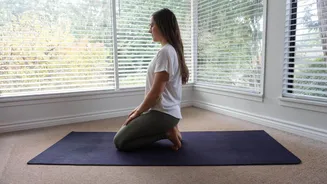Choose the Right Spot
The location where you sit makes a significant impact on how well you handle motion. When travelling in a car, the front seat is often the best choice
because it experiences less movement compared to the back. On a bus, opt for a seat close to the front. If you're on a ship, choose a cabin in the middle of the vessel and on a plane, try to secure a seat over the wing. These positions are typically more stable and can help reduce the conflicting signals sent to your brain, which often trigger motion sickness. By selecting a location where the movement is least pronounced, you improve your chances of avoiding nausea and feeling well during your travels.
Keep Your Head Still
Minimize head movement to help alleviate motion sickness. Avoid activities such as reading or looking at your phone during travel, as these can exacerbate symptoms. Staring at a fixed point outside the window can help stabilize your vision and prevent the mismatch between what your eyes see and what your inner ear senses. When on a boat or in a car, concentrating on the horizon can be especially beneficial, as this point offers a steady visual reference that can reduce the feeling of dizziness and nausea. This technique helps to align your visual input with your body's perception of movement, reducing the likelihood of motion sickness.
Avoid Screen Time
Scrolling through social media, watching movies, or playing video games on your phone, tablet, or laptop during transit can significantly worsen motion sickness. The rapid movement on a small screen can confuse your brain, particularly when it contrasts with the body's sensation of motion. Focusing on a screen also encourages a disconnect from your surroundings, which may intensify the conflict between your visual and vestibular systems. If you're prone to motion sickness, it's best to avoid prolonged screen use and instead focus on the horizon, conversation, or simply closing your eyes to reduce potential symptoms.
Get Some Fresh Air
Adequate ventilation plays a key role in easing motion sickness. Stale air can intensify feelings of nausea. If you're in a car, opening a window to let in fresh air can be helpful. On a plane or bus, try to adjust the air vents to direct a steady stream of fresh air towards your face. Fresh air can provide a sense of coolness and can also help dissipate strong odors that might trigger nausea. Making sure you're breathing clean, circulating air can significantly improve your comfort level and minimize motion sickness symptoms during travel.
Eat Light Meals
What you eat before and during travel greatly influences your susceptibility to motion sickness. Avoid heavy, greasy, or spicy foods, especially before a trip. Instead, opt for light, easily digestible meals and snacks. Crackers, plain bread, or bland foods are generally safer choices. It's often advisable to eat small portions frequently to keep your stomach settled. Staying hydrated is also important, so carry water and sip it regularly. By managing your food intake, you reduce the likelihood of stomach upset, which in turn diminishes the chances of motion sickness.
Focus on Remedies
Various remedies can help alleviate motion sickness. Over-the-counter options such as dimenhydrinate (Dramamine) are available, but these often cause drowsiness. Ginger has also proven to be effective; consider ginger candies or ginger ale. For some, acupressure wristbands can provide relief by stimulating specific pressure points. If you know you are prone to motion sickness, it is best to prepare ahead of time. These remedies can mitigate symptoms and allow you to enjoy your travels more fully. Always check with your doctor before taking new medication.
Practice Focusing
In addition to physical remedies, maintaining a mental focus can help manage motion sickness. Try to stay calm and reduce anxiety, as stress can heighten your susceptibility. Techniques like deep breathing exercises can help regulate your nervous system and reduce feelings of nausea. Focus on positive thoughts, or engage in a relaxing activity like listening to music or an audiobook. By consciously managing your mental state and shifting your focus, you can alleviate symptoms and make your travel experience more enjoyable.













